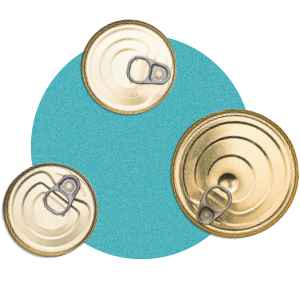A Thriving Future
Research briefs from Rice’s School of Social Sciences
Spring 2024
By Katy Munger and Julie Engebretson
Rice's School of Social Sciences is a vibrant, inclusive community of scholars, students and educators committed to connecting teaching and research with policy for the betterment of society. They work to shape a future where we can all thrive, both individually and collectively.

ECONOMICS FOR ALL
By Katy Munger
Research for the Social Good
Flávio Cunha, chair of the Department of Economics, explores labor economics with an emphasis on human capital formation. His recent work focuses on the causes and consequences of labor inequality and poverty. The director of Rice’s Texas Policy Lab, Cunha is changing the public debate on these issues through evidence-based research that governments across Texas and beyond are using to improve their policies and public investment strategies.
“At the heart of our work at the Texas Policy Lab is a commitment to leveraging research for social good,” Cunha says. “By addressing these critical areas, we hope to contribute to a society where the value of educators is recognized and rewarded appropriately and where every child, regardless of their background, has access to the support they need to thrive.”
Paying Attention to Overlooked Communities
As an applied microeconomist, Rossella Calvi is studying the economics of gender inequality and poverty as well as health and education in developing countries. Her work informs policies aimed at dismantling gender-based obstacles, promotes inclusive economic growth, and lays the groundwork for interventions that could improve the quality of life and socioeconomic prospects for underserved or overlooked communities.
In a recent study, she turned her attention to understanding child poverty among refugees. By introducing a new computer-designed method of evaluating data from refugee camps and surrounding communities in Uganda and Kenya, which host a combined population of more than 2 million refugees and asylum seekers, she learned how resources are allocated — and that children are most vulnerable. “Data on the well-being of individual refugees — including children — is critical for all who seek to diminish or end poverty,” Calvi says. “My research aims to deepen our understanding of inequality in low-income countries and offer insights for policies to address it.”
Mitigating Risk and Infectious Diseases
Economist Ted Loch-Temzelides applies interdisciplinary modeling to research critical to science-based policies in such areas as climate change mitigation, resource sustainability, biodiversity conservation, global health and more. “Climate change and pandemic prevention — two of the topics I am working on — pose global challenges, and they need global solutions,” he says. “We desperately need more interdisciplinary research that breaks down barriers between fields.”
As part of a multi-institutional research team developing new mathematical modeling to assess and address threats faced during a pandemic, Loch-Temzelides and colleagues found that a combination of testing and isolation may be a better and more cost-effective policy for reducing infections and deaths than implementing lockdowns.
“Individuals are not particles, and they follow their own incentives,” he says. “This modeling approach allows us to simulate different situations, evaluate what’s happening, and determine the optimal policy interventions for a variety of scenarios that might prevail in the early stages of a large-scale epidemic outbreak.” Loch-Temzelides and his fellow researchers hope their findings will help guide policymakers in future outbreaks.

RESEARCH BRIEFS
By Julie Engebretson
Food Access During Emergencies
A study led by Rachel Kimbro, sociologist and dean of the School of Social Sciences, determined that as low-income mothers in the Houston area struggled to feed their families during the COVID pandemic, cash assistance via federally issued debit cards offered greater flexibility and presented fewer practical barriers than food distribution by local food banks. Why? Long lines, brutal summer temperatures, limited food options at the food banks, and a lack of child care or transportation were cited among the challenges associated with food distribution.
Access to Education
Rice sociologists Anna Rhodes and Jeremy Fiel are exploring whether and how housing choice vouchers — housing subsidies by the federal government for very low-income families — improve academic outcomes for low-income students in Houston. Their research, funded by the National Science Foundation and the William T. Grant Foundation, will inform local policies to better address the barriers voucher recipients encounter.

Teaching Braille
Thanks to a four-year grant from the U.S. Department of Education, linguist Robert Englebretson and psychologist Simon Fischer-Baum are working to understand how instructors of visually impaired students perceive and teach Braille, and how this affects literacy outcomes among Braille learners.
For students who are blind, Braille is often the first and primary way that they read.
“Most [instructors] are sighted and have a lifetime of experience with print by the time they learn Braille, so they typically read by sight rather than by touch,” Fischer-Baum says. “In contrast, for students who are blind, Braille is often the first and primary way that they read.” The researchers want to understand how this “disconnect in experience” affects how Braille is taught.
Good Call
When the National Basketball Association moved forward with a modified 2020–21 season during the COVID pandemic, teams played their 72-game schedules in empty arenas. Sport management Professor Hua Gong saw an opportunity to investigate how the presence or absence of fans impacts “home bias,” whereby referees allegedly favor the home team over the away team. Gong compared officiating calls in the last two minutes of the season’s closest games in 2020–21 to pre-pandemic games going back to 2017 — and found no significant bias in these crucial moments due to crowd size.
Rewriting History
As recently published in the scientific journal Nature, a genetic study of ancient DNA samples has changed the prevailing narrative surrounding the origins of Songo Mnara, Kilwa Kisiwani and other medieval towns along Africa’s eastern Swahili Coast. The study was co-authored by anthropologists Mary Prendergast and Jeffrey Fleisher. “Forty years ago, the assumption was that [these towns] were the result of Persian colonization,” says Fleisher. “But this study suggests that these towns were fundamentally African in their foundation during the first millennium, and that medieval and early modern Swahili families strategically connected themselves with Persian merchants during the second millennium.”
120,000: The number of citations to psychologist Eduardo Salas’ body of work
Eduardo Salas was awarded the American Psychological Foundation Gold Medal Award for Impact in Psychology in 2023 for his research into facilitating teamwork and team effectiveness in organizations.

Leading Scholar
For her contributions to the field of applied experimental and engineering psychology, Jing Chen earned the American Psychological Association’s Earl Alluisi Award for Early Career Achievement. The award was presented at the 2023 APA Convention in Washington, D.C.
STaRT@Rice
Statistical Training and Research Techniques at Rice, or STaRT@Rice, a program launched in 2021 by sociologist Tony Brown, aims to enhance community within the School of Social Sciences, particularly between underrepresented minorities and first-generation, low-income students. Returning Oct. 11–14, 2024, this annual weeklong gathering includes a variety of research lectures and workshops.
